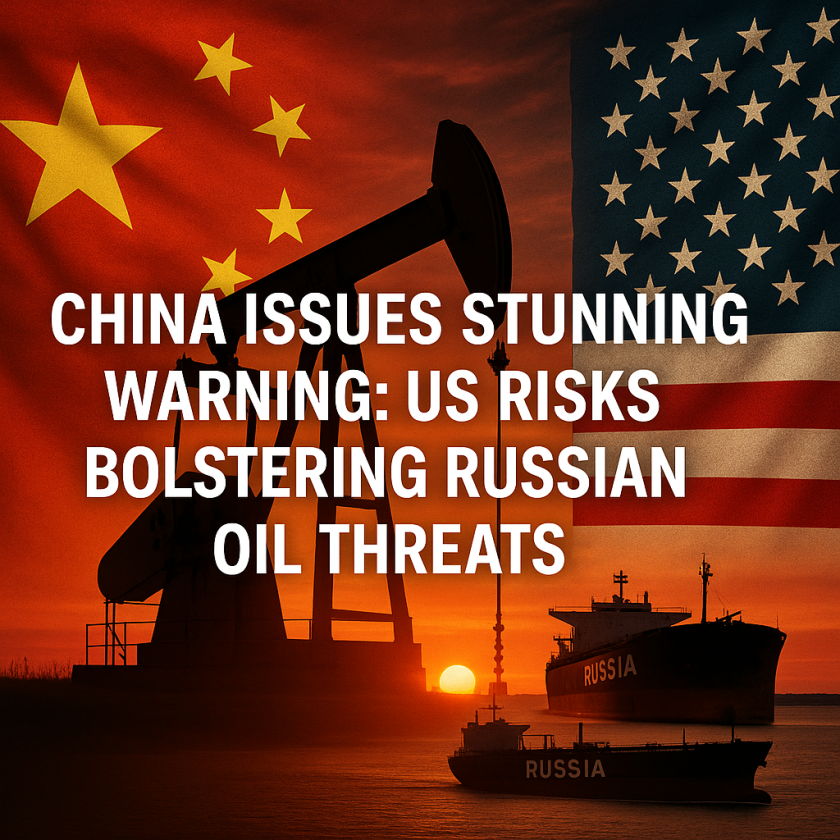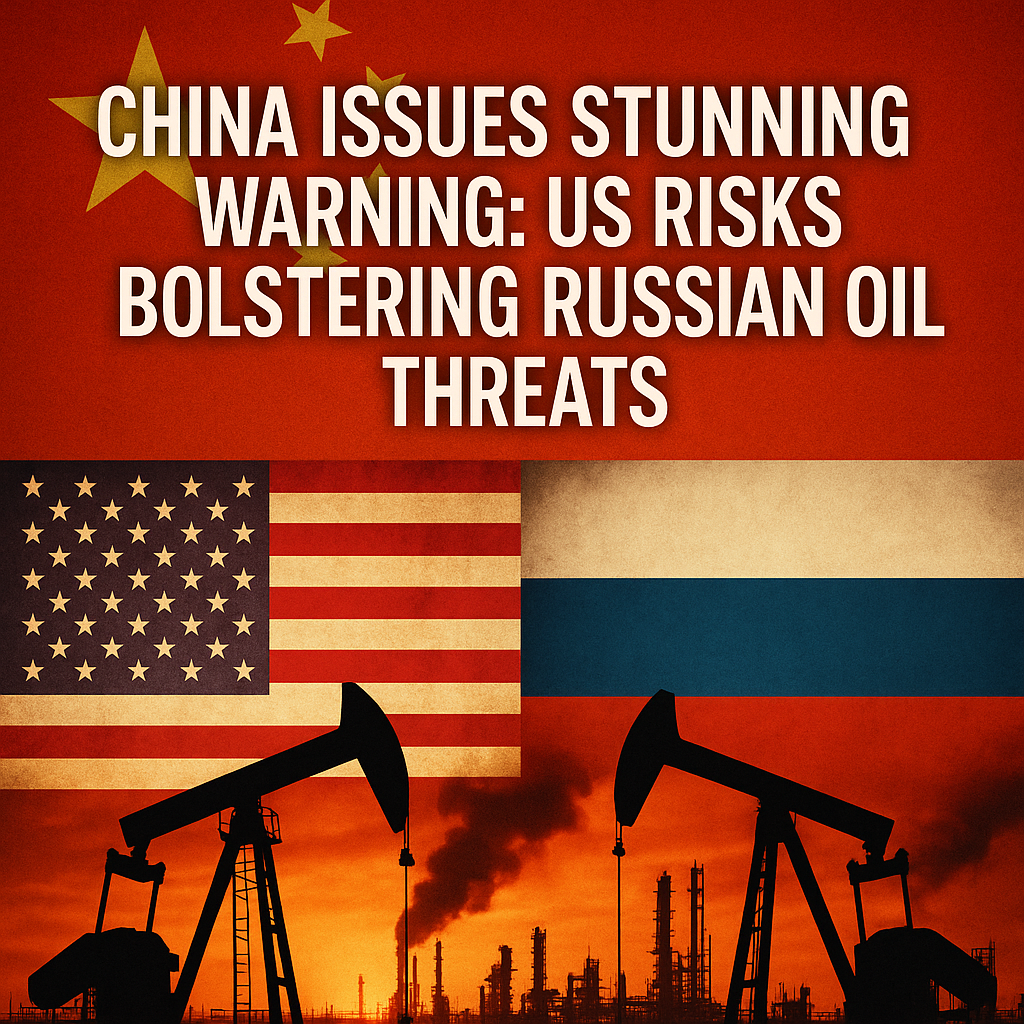China Issues Stunning Warning: US Risks Bolstering Russian Oil Threats
Understanding the Implications of China’s Warning on US Tariffs and Russian Oil
China recently issued a striking warning regarding US tariffs, suggesting that they may inadvertently strengthen Russian oil threats against global markets. This article breaks down the nuances of this situation, exploring the perspectives of multiple sources and revealing the complexities at play.
The Context of China’s Warning

The backdrop of China’s alert lies in the ongoing geopolitical tensions between the US and Russia, alongside the broader global energy crisis exacerbated by the war in Ukraine. According to reports from RT, Chinese officials expressed concern that US tariffs targeting Russian oil could have the unintended consequence of bolstering Russia’s position in energy markets rather than weakening it. This comment reflects a nuanced understanding of how economic sanctions can backfire when not carefully coordinated with global partners.
US tariffs have increased prices and disrupted supply chains, particularly in energy sectors where Russia has found alternative markets. Al Jazeera noted that Russia has turned its focus toward Asia, specifically looking to China and India to replace lost Western customers. The shift might empower Russia to negotiate better terms for its oil, thus strengthening its global economic foothold.
International Reactions and Implications
The implications of China’s warning extend beyond mere rhetoric. The decision by the US to impose tariffs on Russian oil could intensify the existing energy crisis. From a geopolitical standpoint, if China repositions itself to support Russian oil imports further, this could create a more formidable bloc against Western nations, complicating global diplomacy.
While the US aims to alleviate the energy crisis among its allies in Europe, it faces a paradox where a secondary effect of its sanctions could be an increase in Russian oil sales elsewhere. Reports suggest that India has ramped up its purchases of discounted Russian crude, while China has also increased import levels, thus potentially offsetting the impact of US sanctions.
The Economic Landscape and Russia’s Resilience
The economic landscape is shifting as nations navigate these tough waters. As per data highlighted by Sky News, Russia has showcased a remarkable ability to adapt to sanctions, finding alternative buyers and routes. This resilience may lead to a prolonged energy conflict, where the US risks exhausting its leverage without yielding the desired results.
– Energy Security Concerns: European nations are also in a precarious position as they seek to reduce dependency on Russian oil while facing the pressures of rising prices. The possibility of Russian oil finding its way back into European markets, albeit indirectly through alternative sourcing, remains a persistent concern.
– Developing Partnerships: The warnings from China also underline the importance of developing strong partnerships among nations. As countries like India and China engage more deeply with Russia, the geopolitical landscape grows increasingly intricate—raising questions about energy security and economic stability.
Complex Interdependencies
Understanding the interplay of these economic and political factors reveals the complex interdependencies at play. Both China and Russia appear poised to benefit from the current turbulence. While the US positions itself as a leader in the fight against Russian aggression, the unintended consequences of its policies could empower its adversaries instead.
Indeed, the situation calls for a recalibration of strategies. If the US continues solely to apply tariffs without considering the broader implications for global energy markets, it may inadvertently strengthen alliances forming in opposition to Western interests. This poses questions not only for American policymakers but also for allies who may be affected by Russia’s newfound flexibility in energy exports.
The Path Ahead: A Call for Strategic Collaboration
As the world watches these developments unfold, it is clear that a collaborative rather than a confrontational approach may yield better outcomes. It would be prudent for the US to engage diplomatically with its allies, providing support while ensuring a robust response to the challenges posed by Russia’s energy strategy.
In summary, while China’s warning about the US bolstering Russian oil threats carries significant weight, it is part of a larger narrative about global energy dynamics. The complex web of international relations, economic interests, and energy needs requires thoughtful, nuanced strategies that go beyond simple tariffs or sanctions. By recognizing and addressing these complexities, the US and its allies can better navigate the treacherous waters of international energy politics.






































